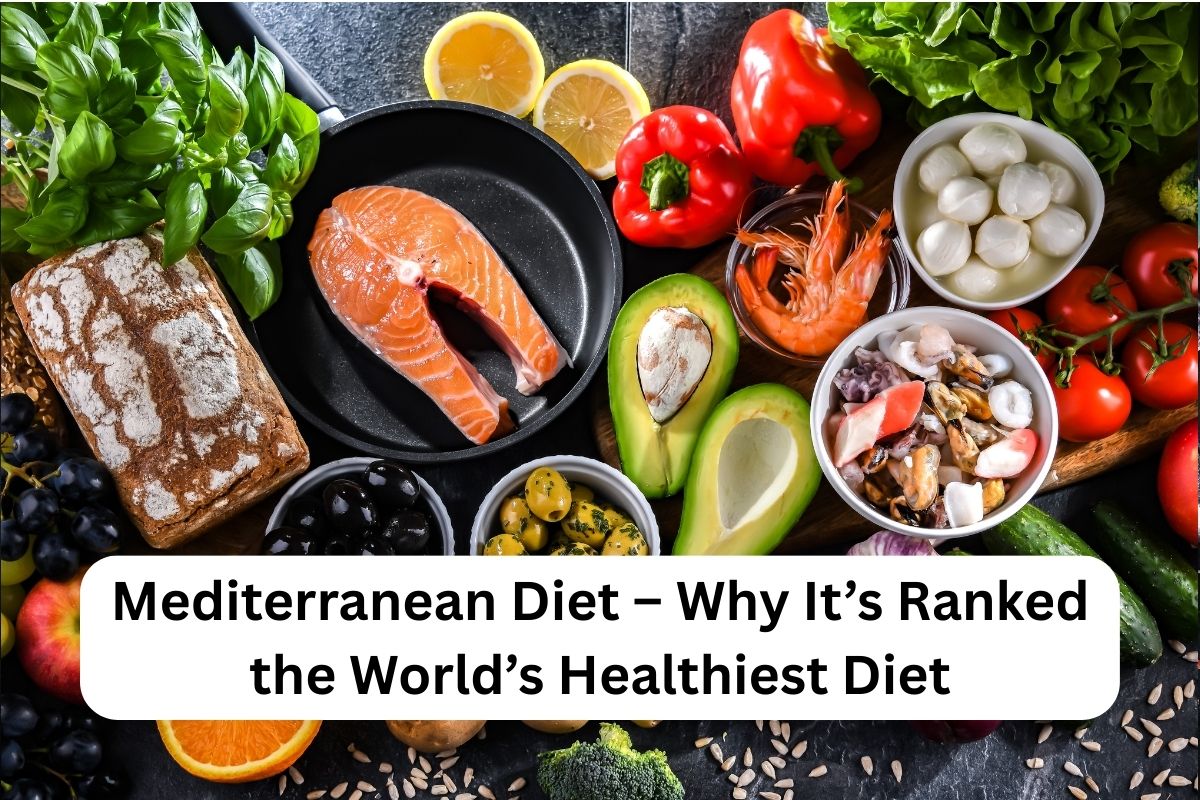The Mediterranean diet has consistently been ranked as the world’s healthiest diet by nutritionists and health experts. Inspired by the traditional eating patterns of countries like Greece, Italy, and Spain, this diet emphasizes fresh produce, whole grains, lean proteins, and healthy fats. More than just a way of eating, it’s a lifestyle that blends nutrition with cultural traditions, family meals, and physical activity.
In this article, we’ll explore why the Mediterranean diet earns top health rankings, what foods it includes, and how you can incorporate it into your everyday life for better energy, heart health, and longevity.
What Is the Mediterranean Diet?
The Mediterranean diet is not a strict meal plan but rather a flexible approach to eating based on foods commonly consumed in Mediterranean countries. It focuses on:
- Plenty of vegetables and fruits
- Whole grains and legumes
- Olive oil as the main source of fat
- Fish and seafood regularly
- Moderate dairy and poultry
- Limited red meat and sweets
- Wine in moderation (optional)
This balanced approach has been linked to lower risks of chronic diseases and a longer, healthier life.
Health Benefits of the Mediterranean Diet
1. Heart Health

Rich in omega-3 fatty acids, olive oil, and fiber, the Mediterranean diet helps reduce cholesterol and improves cardiovascular function.
2. Longevity and Aging
Studies show that populations following this diet have longer life expectancies due to reduced risks of diabetes, stroke, and Alzheimer’s disease.
3. Weight Management

Unlike restrictive diets, this one promotes satiety through nutrient-dense foods, preventing overeating while supporting healthy weight.
4. Mental Health
The diet’s inclusion of omega-3s, antioxidants, and whole foods is linked to improved mood and reduced depression risk.
5. Anti-Inflammatory Properties
Olive oil, nuts, and colorful vegetables provide antioxidants that reduce inflammation and protect against chronic illness.
Core Mediterranean Diet Foods
Here’s a breakdown of the main food groups in the Mediterranean diet:
| Food Group | Examples | Health Benefits |
|---|---|---|
| Vegetables & Fruits | Tomatoes, spinach, oranges, berries | High in antioxidants, vitamins, and fiber |
| Whole Grains | Quinoa, barley, brown rice, whole wheat | Sustained energy, digestive health |
| Healthy Fats | Olive oil, avocados, nuts, seeds | Supports heart health, lowers bad cholesterol |
| Lean Proteins | Fish, poultry, legumes, beans | Builds muscle, rich in omega-3 and protein |
| Dairy in Moderation | Yogurt, cheese | Supports gut health and bone strength |
| Beverages | Water, herbal teas, red wine (moderate) | Hydration, antioxidants (from wine/tea) |
Mediterranean Lifestyle – Beyond Food
The Mediterranean diet is not just about what you eat; it’s about how you live:
- Sharing meals with family and friends promotes mindful eating.
- Regular physical activity like walking, gardening, or cycling keeps the body active.
- Stress management through community and social connections reduces emotional strain.
This holistic approach is a key reason why the diet is consistently ranked as the best in the world.
Why It’s Ranked the World’s Healthiest Diet
Health organizations like U.S. News & World Report rank the Mediterranean diet as the #1 diet globally because it’s sustainable, backed by decades of research, and adaptable for any lifestyle. Unlike fad diets, it doesn’t require cutting out entire food groups but instead focuses on balance, moderation, and quality nutrition.
Tips to Get Started with the Mediterranean Diet
- Swap butter for olive oil.
- Add more fresh vegetables to every meal.
- Eat fish twice a week.
- Choose whole grains over refined ones.
- Snack on nuts and fruits instead of chips or sweets.
- Enjoy meals with others when possible.
The Mediterranean diet is more than a diet—it’s a way of life rooted in balance, fresh ingredients, and mindful eating. Its proven benefits for heart health, longevity, mental wellness, and sustainable weight management make it the world’s healthiest diet. By adopting its principles, you’re not just following a food plan but embracing a lifestyle that nurtures both body and mind.
FAQs on the Mediterranean Diet
1. Can vegetarians follow the Mediterranean diet?
Yes. The diet is highly plant-based and can be adjusted to vegetarian needs by focusing on legumes, grains, vegetables, and dairy.
2. Is the Mediterranean diet expensive?
Not necessarily. Many staples like beans, grains, and seasonal produce are affordable.
3. Can I lose weight with the Mediterranean diet?
Yes. By emphasizing nutrient-dense foods and avoiding processed ones, weight loss is achievable naturally.
4. Is red wine necessary in the Mediterranean diet?
No. Red wine is optional and should be consumed moderately. Water and herbal teas are healthier everyday options.
5. How quickly will I see health benefits?
Some benefits, like better digestion and energy, can appear in weeks. Long-term advantages build over months and years.
